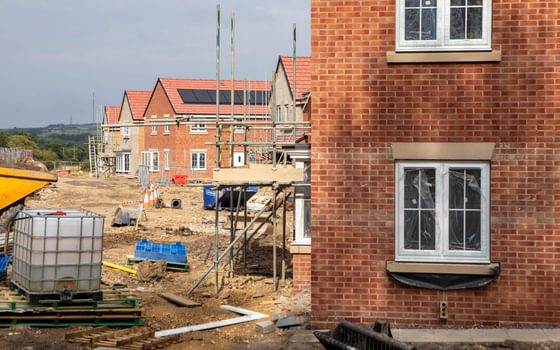Housing crisis: big speeches, small steps
Clampdown on planning loopholes is welcome, but housebuilding cannot be left to private developers
08 March 2018
Theresa May gave a big speech this week launching the new National Planning Policy Framework consultation. This is the latest attempt by the government to do something about the housing crisis.
There was promising talk about intergenerational inequality, escalating rents, and the separation between those who have access to the Bank of Mum and Dad and those who don’t. The Prime Minister also rightly acknowledged that private developers are in the business of making profit and increasing value for their shareholders. Unfortunately, she didn’t recognise that this means it is very difficult to force developers to build either the quantity or type of homes we badly need. Indeed, since the collapse in council building in the early 1980s, house building overall has struggled to reach the levels we need.
The package of solutions showcased in May’s speech shows an almost total dependence on the private sector. Of the £44bn the government is pledging for housing, £32.5bn is support for private housebuilders. In addition, much of the rest of the money for ‘affordable’ housing is for shared ownership or 80% market rent, which is out of reach for many households.
The proposed changes to planning law are, however, a genuine step in the right direction. The government appears to be finally listening to mounting anger over the exploitation of planning loopholes by developers, resulting in huge numbers of affordable homes missing from new developments. Ultimately, this has its roots in how poor our system is at dealing with the unique economic properties of land. As each bit of land is unique, landowners can sit back whilst developers compete to outbid each other. Frenzied bidding wars favour developers who make the most cavalier assumptions about what they can afford to pay for land, squeezing out infrastructure, affordable housing and other community needs.
The most important part may be the end to confidential viability agreements. This will finally allow communities to scrutinise decisions made about homes built in their area.
This determines the price of the land paid, locking in the assumptions the developer has made. They then have to follow through on their plan, building slowly to make sure they don’t flood the local market with new homes and getting round contributions in order for the development to be ‘financially viable’. Under current planning rules, viability is a valid excuse to argue down affordable housing even after the council has granted planning permission. Developers therefore factor arguing the council down into their offer to land owners, bidding up land prices even higher. In many cities, communities end up with little or no affordable housing contributions.
Under the Government’s new proposal, councils will be expected to set levels of affordable housing in advance by conducting their own viability assessments. Crucially, the land price used to set these levels will be based on the existing use of the land, plus a premium to incentivise a landowner to sell. This principle means that community needs determine the unearned windfall a landowner can expect, rather than land prices dictating what the wider community gets from development.
The new rules expect councils to use ‘costs’ from data on relevant ‘case studies’. The problem is land prices have already been bid up in many urban areas, so if the costs going into these plans include these high land prices, they’ll just bake-in the viability jiggery-pokery that’s been happening for the last few years. As Shelter has pointed out, these proposals also guarantee developer profits and unfortunately leave room for a mechanism to ‘review’ viability after plans have been set.
This could mean many of the positive steps in the proposal could be meaningless if prices continue to slow and developer profits are squeezed. In practice, it will come down to underfunded council planning departments battling it out in the courts with developers’ high-powered lawyers. For this reason, the most important part of the new viability policy may be the end to confidential viability agreements. This will finally allow communities to scrutinise the decisions made about homes built in their area.
Ultimately, policy on viability alone will not fix the housing crisis, although the rules sorely need to change. We need to get cheap land into the hands of well-resourced local institutions and community groups who do have the incentive to build genuinely affordable homes. A People’s Land Bank could be the genuinely radical solution that helps to deliver this.
Topics Housing & land






